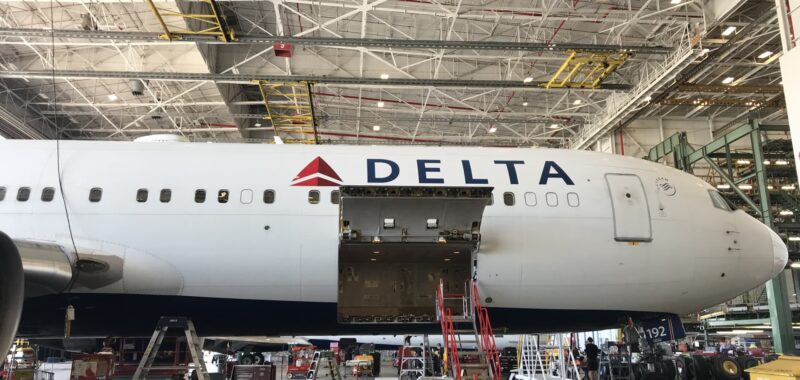Delta Air Lines on Wednesday said sales would grow in 2025, citing a “resilient economy” for strong travel demand and credit card spending, especially for higher-end offerings. It also said it expects to grow earnings in the coming years.
Delta forecast revenue growth in the mid-single digit percentage points next year compared with 2024, in line with the roughly 6% growth analysts were expecting.
In an investor day presentation, the carrier said it would expand flying by 3% to 4% next year from 2024. Delta also reiterated its fourth-quarter outlook. Longer term, it said it expects to grow adjusted earnings by 10% a year over the next three to five years.
Delta is the most profitable U.S. airline and its leaders tout its strong partnership with American Express and high demand for pricier seats toward the front of aircraft as part of its success. United Airlines, however, has made inroads in growing profits and capturing high-end travelers. Delta’s shares are up 60% so far this year through Tuesday’s close, while United’s are up 128%. Both are outpacing the broader market and other carriers.
Delta said just 43% of its revenue this year comes from main cabin tickets, with 57% of it generated by premium seats and its lucrative loyalty program. That’s up from a 60% share of revenue from the main cabin in 2010.
The carrier has spent years working to get customers to pay up for first class, seats it largely gave away in years past.
Delta’s president, Glen Hauenstein, told reporters that about 15 years ago, about 12% of Delta’s first-class seats were paid for and the rest were upgrades for frequent flyers. Now, more than 70% of those seats are purchased, including buy-ups after booking. He said the change at first was “trauamtic” to some travelers.
Hauenstein said Delta is looking for new ways to segment its cabins after the carrier â and rivals â spent years breaking coach-class into options like premium economy, extra-legroom seats and basic economy. While it didn’t provide detail, it’s also considering more options for travelers sitting in the front of the plane too, Hauenstein said.
During its presentation, the airline’s executives could face questions about future demand, controlling costs and steps the airline has taken to avoid another repeat of the massive impact from the CrowdStrike outage last July.

